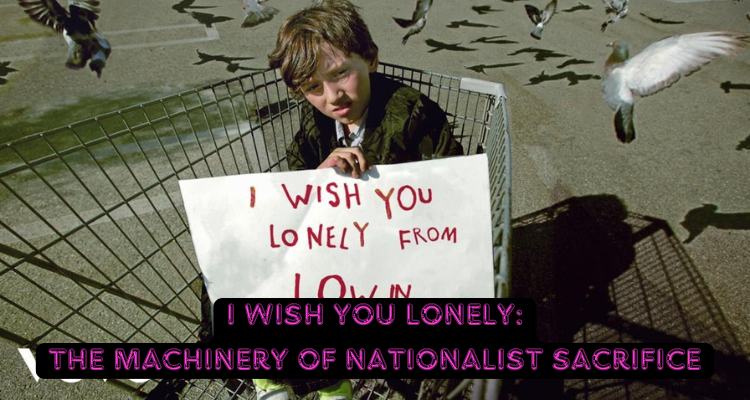In I Wish You Lonely, Morrissey delivers one of his most biting critiques of nationalism—not just as an ideology, but as a system of sacrifice. Unlike Irish Blood, English Heart, which seeks a nationalism free from shame, this song fully dismantles the way nations manufacture meaning through death.
Morrissey isn’t just questioning why people die for their country—he’s asking why this kind of sacrifice is glorified, ritualized, and endlessly repeated.
The Power of Nationalism – Worship Through Death
Nationalism’s greatest strength is its ability to make people willingly die for it.
Tombs are full of fools who gave their life upon command
Of monarchy, oligarch, head of state, potentate
And now never coming back, never coming back
This is a direct rejection of the “heroism” that nations build themselves upon:
- War memorials, national holidays, history books—they all turn soldiers into sacred figures, framing their deaths as glorious, necessary, and noble.
- In reality, most of these deaths serve no real purpose. They happen at the command of elites—monarchs, politicians, corporate interests—people who themselves never risk anything.
- The dead don’t return. They don’t get to see whether their sacrifice was worth it. They are gone, and their memory is used as fuel for the next generation of recruits.
This is what nationalism does best—it doesn’t just kill, it mythologizes death to ensure that more will follow.
Nationalism as an Emotional Machine
Nationalist ideology isn’t purely rational—it is deeply emotional, symbolic, and ritualistic.
- Nations do not just ask people to fight—they make it a moral duty, a spiritual calling.
- If someone questions a war, they are told they are dishonoring the dead—as if the greatest disrespect isn’t sending people to die in the first place.
- Death cements identity—a nation that loses its soldiers is compelled to avenge them, creating an endless cycle of war, mourning, and more war.
This is why war monuments exist—not just to remember the dead, but to ensure that people keep dying.
- Would people still die for their country if their sacrifice wasn’t framed as noble?
- If war memorials were statues of decaying corpses, shattered bones, and sobbing families, would young men still enlist?
- Nationalism relies on beauty to mask horror.
Morrissey sees through this and refuses to participate.
The Absurdity of National Sacrifice
Another layer of irony in this song is that the same people who fight and die for their country often receive nothing in return.
- Veterans are discarded.
- The wealthy elite benefit from wars, but never fight in them.
- The poor and working class are sent to die, while the ruling class profits, writes history, and moves on.
This is the ultimate nationalist scam:
- You are told your country needs you—but the people who run the country don’t need you at all.
- You are told you will be honored in death—but only if your death can be used to inspire more.
Conclusion – A Rejection of the Nationalist Death Cult
I Wish You Lonely is not just anti-war—it’s anti-nationalist in the deepest sense. It exposes nationalism for what it truly is:
- A machine that turns death into meaning.
- A system that convinces people to give their lives away for nothing.
- A loop that never ends because the dead cannot object to how their memory is used.
Morrissey’s final verdict? Let the tombs be full of fools—but let us not join them.



